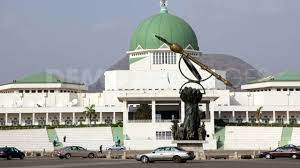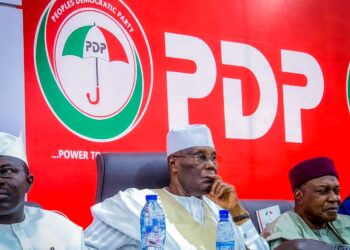JOSHUA EGBODO writes on the return to January-December budget cycle by the House of Representatives which has been maintained in the last two budgets, 2020 and 2021, and contemplates on the possibility of sustaining the move, as committees of the house wind down budget engagements with MDAs.
The Speaker’s pledge
Newly elected then, Speaker Femi Gbajabiamila in his inaugural speech said, the House “would be shaking the table, just a little”, a statement many interpreted to mean a good shift from what may have been the wrongly assumed norm.
“My honourable colleagues, it is going to be a House of reform or a reformed assembly. Therefore, It will not be business as usual but I will be shaking the table, just a little. We will be introducing various reforms that will re-position institutions. But please rest assured that it will be for the good of all”, he said.
The return to a new a cycle
In a move signalling a return to the January-December budget cycle as pledged by new leadership of the National Assembly, on Thursday October 8, 2020, President Muhammadu Buhari laid the 2021 budget estimates of the federal government before a joint session of the nation’s apex parliament. Hitherto, there had been perennial failure to meet up on that, with annual budgets being passed deep into successive years, especially with the return of democratic governance in 1999.
Even as the President requested a quick passage of the budget, one thing that seemingly gladdened him was the effort of the National Assembly at returning the nation’s budget cycle back to a January-December format, which it successfully instituted through the 2019 budget.
“Today marks an important occasion in our quest to accord the federal budget process the seriousness it deserves. In line with our commitment, we have worked extra hard to ensure early submission of the 2021 –2023 Medium-term Expenditure Framework and Fiscal Strategy Paper, as well as the 2021 Appropriation Bill. It is my sincere hope that the National Assembly will pass this Bill into law early enough to enable implementation by 1st January 2021, given the collaborative manner in which the budget was prepared”, the President stated in part of his remarks.
Promise kept for 2020, 2021
Gbajabiamila commended his colleagues, when the House ended its 2020 sittings, especially for all the sacrifices made towards making the budgeting process a success. A budget with an aggregate expenditure of N13.5tn was passed for 2021 fiscal year at that sitting.
In an address to wind down the activities of the House for the year during a special plenary , the Speaker cited the coronavirus pandemic as a phenomenon that altered all calculations in 2020 and put the capacities of nations to weather the storm to test, citing the commitment of lawmakers to pass the 2021 budget of N13.5trillion to maintain the January-December budget cycle and make provisions for development, as one of such sacrifices.
“Today, we have passed the budget in the House of Representatives in good time to maintain the January to December budget cycle in line with the commitments we made when we resumed office.
“The January to December budget cycle is necessary to ensure effective implementation of our annual budgets to meet our nation’s development challenges. By our joint efforts and the grace of God, we will maintain this standard for every year we are in office, and leave a legacy for our successors to aspire to.
“The truth is, we have done better than many believed was possible, better than many nations, even the most advanced. Our economy has taken a big hit, but through partnership with the private sector, government has been able to prevent the nightmare scenarios that some predicted”, he stated when the 2020 budget was passed by the House of Representatives.
The House similarly passed the 2021 budget without much hurdles.
Expectations for 2022
Expectations have remained high since October 7, 2021 when President Buhari laid the 2022 budget bill before a joint session of the National Assembly.
“When we resumed in the 9th Assembly, we committed to pursuing long-awaited and critical reforms to the appropriations process to ensure that we are better able to deliver on the promise of our national development. Over the last two budget cycles, by the joint effort of the executive and legislature, we have made significant progress in this regard and achieved reforms that will stand the test of time and count in our favour.
“These reforms, including establishing a January to December budget cycle, improving oversight procedures, and ensuring greater fidelity to the letter and spirit of our appropriation laws, have led to measurable improvements in public infrastructure, access to education and housing, healthcare and transportation, amongst others. These improvements, which have had a positive impact on the lives of millions of Nigerians across the country, inspire us to do more.
“Therefore, as legislators and leaders in government, we have a continued obligation to ensure that in considering this Appropriation Bill, we make all deliberate efforts to ensure that we continue to make critical investments in education and healthcare, public infrastructure and national security. Through these investments, we can hope to build an economy that provides enough well-paying jobs for our young population so that we can, in our lifetime, end endemic poverty in our country and eradicate the social ills that derive therefrom”, the Speaker stated partly in his speech when the 2022 budget was laid.
Legalising the cycle
Like a no-giving up stance in the opinion of many pundits, the House of Representatives on Thursday November 25, 2021 passed through the second reading, a bill to regulate the planning, preparation, passage and execution of the budget of the Federal Government of Nigeria. The real intend behind the legislative proposal was to make the January-December budget cycle legally sacrosanct, through an Act of the parliament. The proposed legislation, sponsored by Hon. Abbas Tajudeen, member from Kaduna State seeks to among others things, define the budget cycle and timeline for each stage of the appropriation process.
The promoter’s justification
In his presentation on the general principles of the Bill, Tajudeen said it intends to ensure that the January 1 to December 31 timeline be made a law as sacrosanct, and a period within which every budget in the federation should be formulated.
“It should serve as an organic budget law. It should also complement the Constitution on the management of public finance. It should make the participation of stakeholders in the budget process mandatory.
“It should define how budget projections should be funded. It should define the limit of deficit in each budget through borrowing”, the lawmaker stated.
Meeting the expectations
In all considerations of analysts, the House appeared determined to sustain the January-December budget cycle. As its standing panels tidy up their respective engagements with MDAs, and reports forwarded to the Appropriations Committee, to many, there appeared no challenges that may alter the course of meeting up before the House winds down for 2021.
Quote:Even as the President requested a quick passage of the budget, one thing that seemingly gladdened him was the effort of the National Assembly at returning the nation’s budget cycle back to a January-December format, which it successfully instituted through the 2019 budget.




